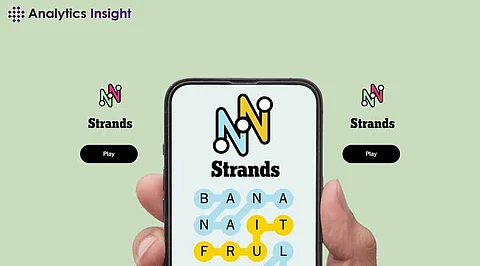

How difficult is today's Strands puzzle, and is it more of a challenge than players were expecting? The New York Times’ Strands game is gaining a following, thanks to its mix of word search and themed connections, even though it’s in beta. Players are tested by new puzzles every day—puzzles to uncover hidden words connected by a theme, such as the uniquely addictive “spangram”—which all come together in a single play. Today’s puzzle for November 8 has something interesting, if not surprising, each day.
Strands offer up a 6x8 grid of letters, and players are asked to find a series of interconnected words that all either have a shared theme or a shared signifier. Each word must be uncovered by joining adjacent letters either vertically, horizontally or diagonally, side to side, shifting directions in the middle of a word is allowed. The aim is to find as many theme words as possible, highlighting them in blue once answered correctly.
The “spangram” is a special part of the puzzle. This word is a bridge between words placed across the board so that one side links to the other and all the other theme words. The spangram, unlike the theme words, can have proper names and is a core hint to what sort of theme the whole puzzle is built on. It is highlighted yellow when found, so it’s distinguished from the other words on the board.
Unlocked by finding three valid words (at least four letters each) unrelated to the theme, Strands offers a unique hint system for anyone trapped. Once this is hit, the “Hint” button appears that highlights letters for one of the hidden theme words. Hints that help, but often not that much in the way, because the creators have a habit of playing with the style of the puzzle by changing synonyms, phrases and other related words.
The official hint for today's puzzle features a set of emojis related to actions or gestures, suggesting that today's theme may relate to hand movements or signals. Here’s a hint in simpler terms: see your communication without words.
Another bit of advice on solving today’s puzzle is simply, “not saying something,” which leads players to actions with their hands to convey meaning through hand gestures. Realizing the combination of these clues should help players start to form a bit clearer representation of what could be the theme.
Today’s Spangram
HANDSIGNALS is the spangram that ties everything together for November 8. This word proves that in the puzzle they offer nonverbal ways of communicating using hand actions.
With the theme of HANDSIGNALS in mind, here’s the full list of theme words for today:
SIGN
WAVE
CLAP
SHAKE
POINT
FIST
PRAY
SALUTE
PINCH
The first words describe different hand actions we use in our meals every day, from greeting someone to signalling or showing respect. In particular, each word can be interpreted as an easily recognizable hand gesture, which demonstrates the piece’s obsession with non-discourse communication.
The Strands puzzle you’re working on today might have a tiny bug or exception that breaks the rules for a Strands puzzle. Using letters in one word prevents their reuse in any other word in that same area. However, in this puzzle, there seems to be an unexpected crossing of PINCH over another word, a crossing that doesn’t occur in Strands. This minor glitch may have a problem but doesn’t affect the ability to solve the puzzle.
Strands already has some buzz due to its twist on the word search game and will remain as a regular word search if it proves popular enough. With each puzzle a new theme and a new challenge, players can't wait for new daily updates.
Strands offers daily word search fun for those ready to try it, with fun surprises and cool themes thrown in for good measure. Each day, a new Strands puzzle is released that players can solve which will unlock hints, find spangrams and find all hidden words.
Strands, with its special word search usage and engaging themes, is quickly becoming a must-have, if not daily, puzzle for word gamers. Today’s November 8 puzzle featured a theme involving non-verbal communication through hand gestures, with the players having to find words that pertain to hand actions. Small rule-breaking bug aside, the puzzle signaled the game’s flexibility and ability to surprise, and was a nice addition to the NYT’s suite of games.
